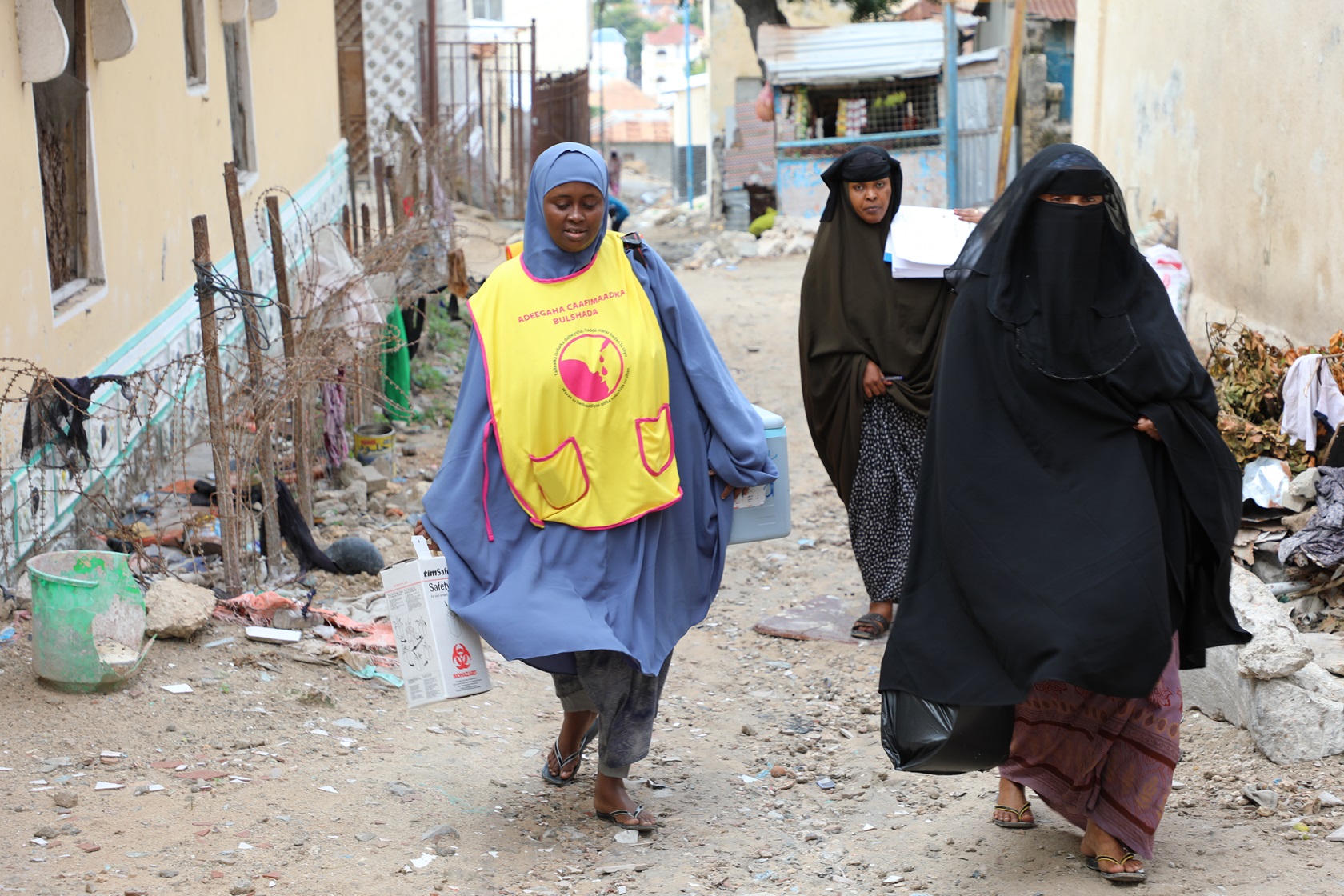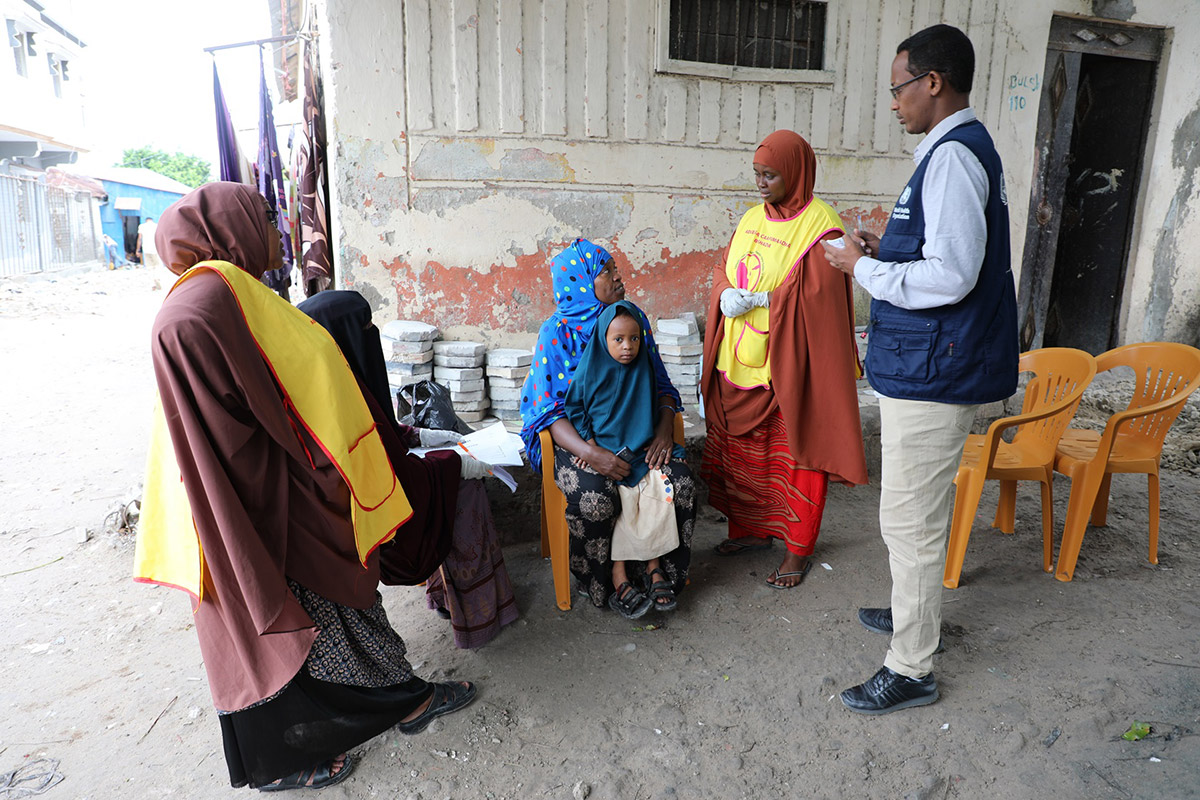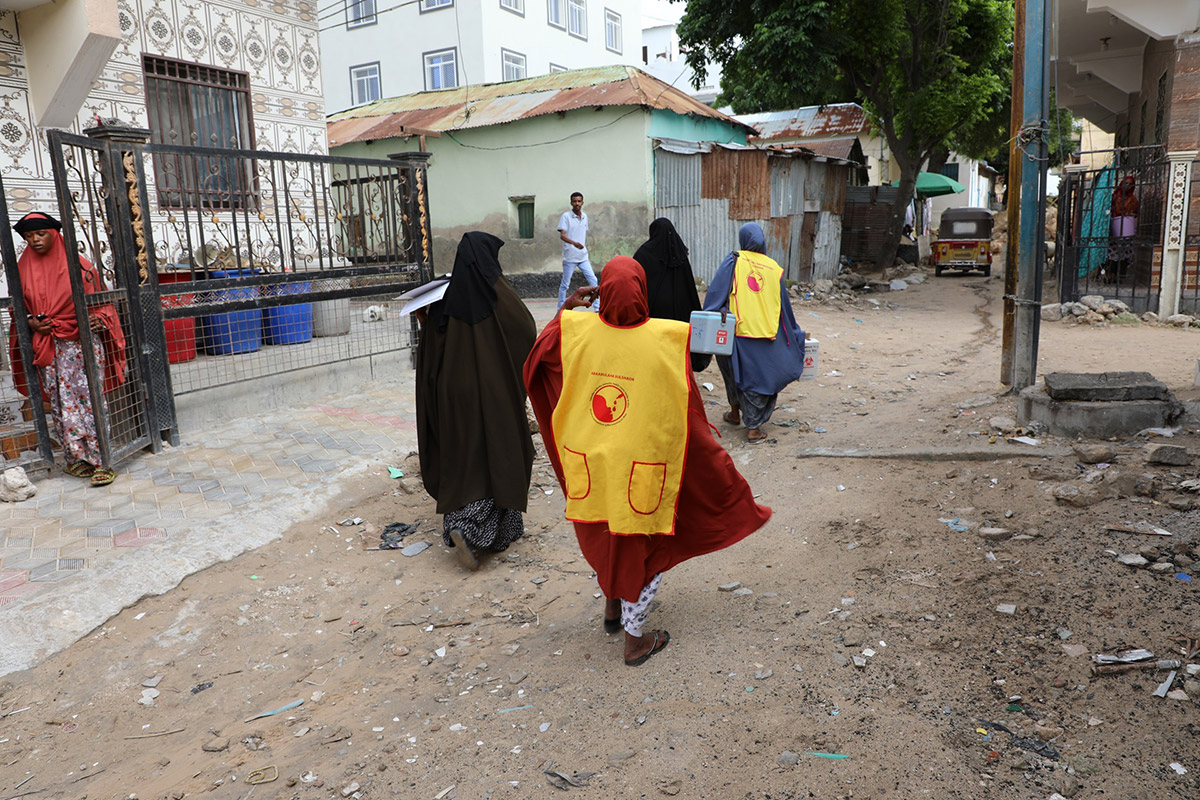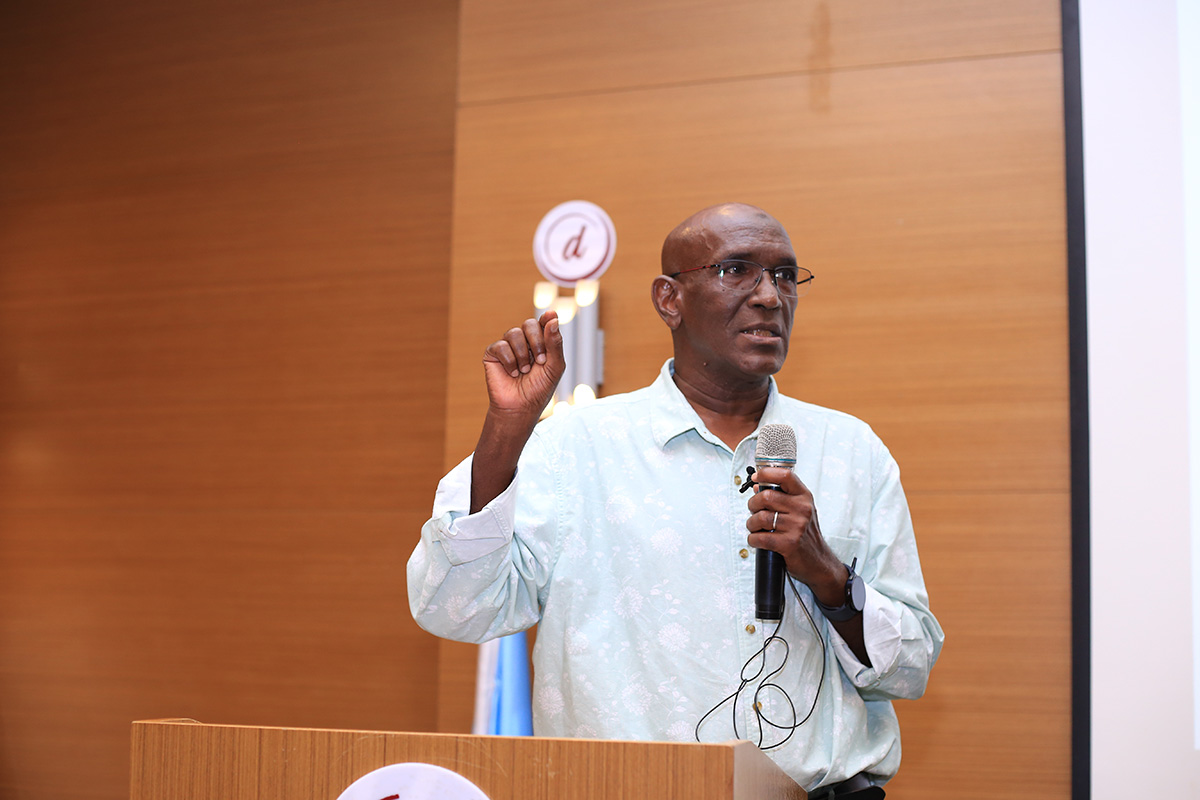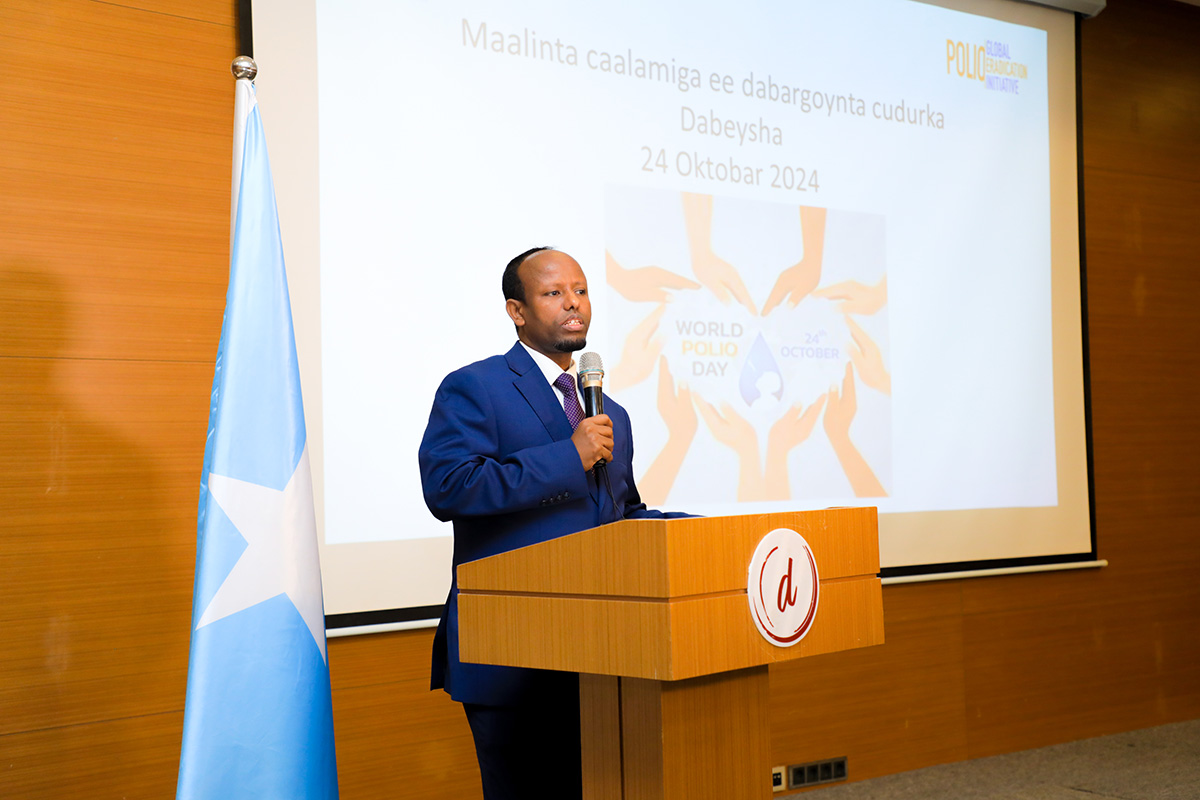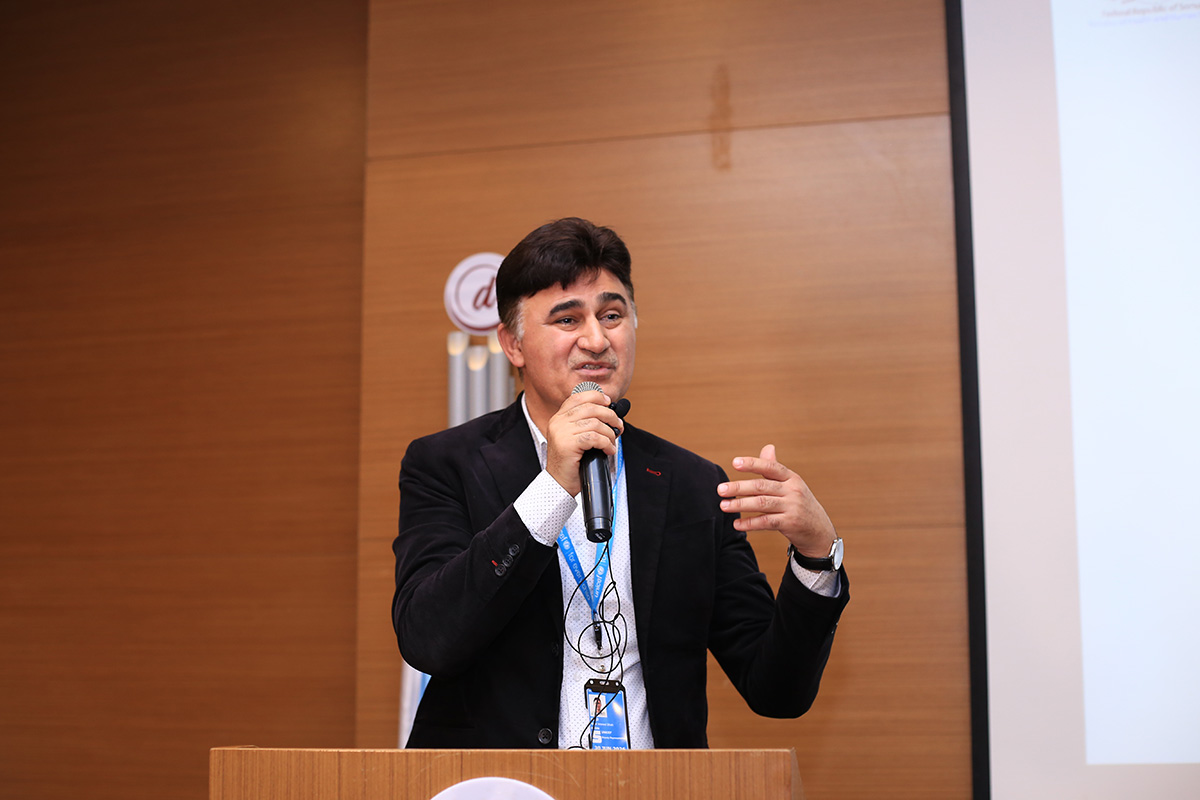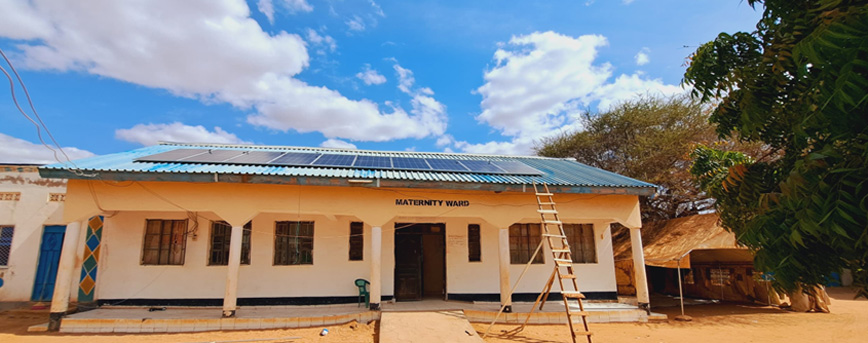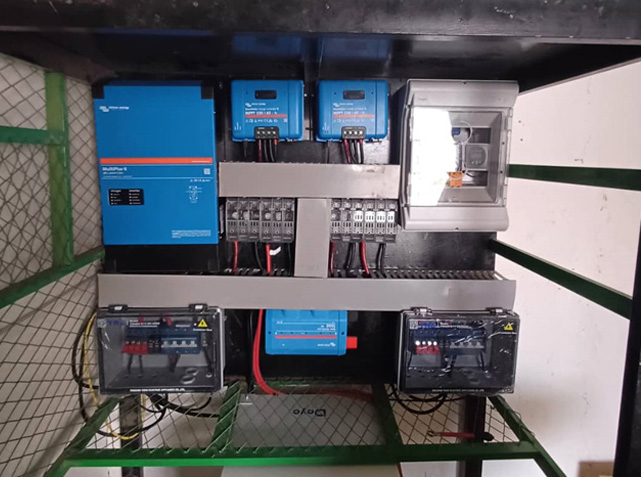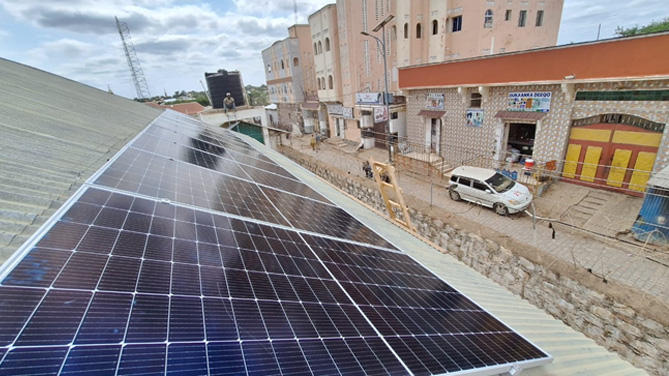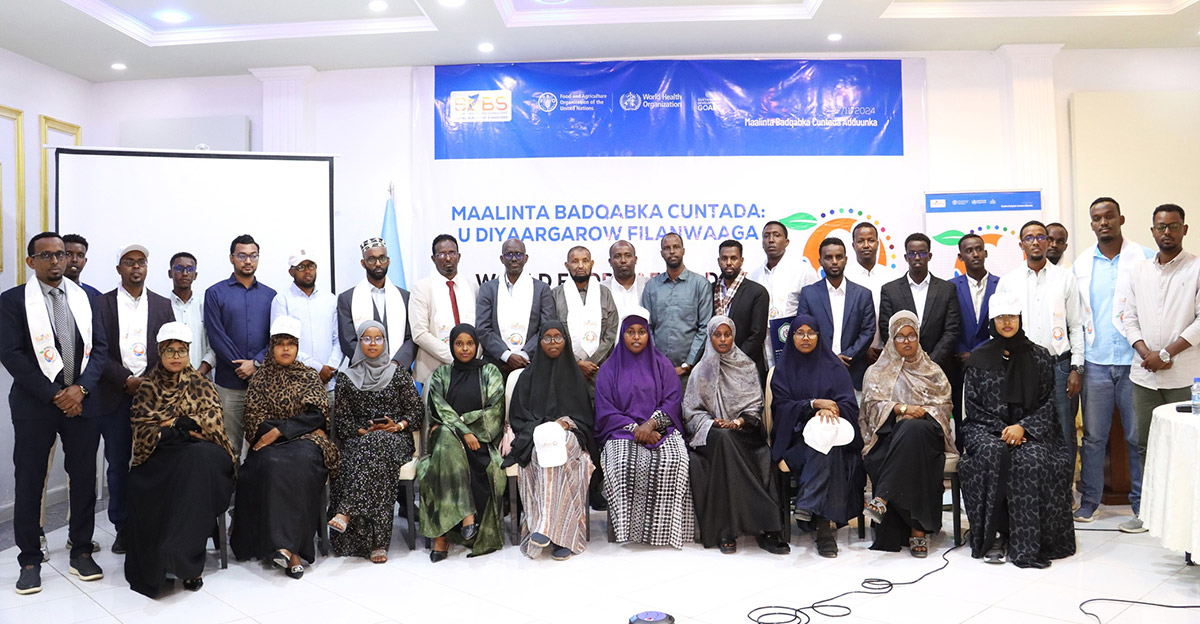
On 27th November 2024, Mogadishu, Somalia – For the first time ever, Somalia has celebrated World Food Safety Day (WFSD) in collaboration with World Health Organization (WHO) Somalia and the Somali Bureau of Standards.
A forum held in Mogadishu brought together government officials, international partners, private sector actors and representatives from academia to discuss food safety in Somalia under the theme of this year’s WFSD – Food Safety: prepare for the unexpected.
The food situation in Somalia is precarious. There is heavy reliance on imported – often unregulated – products, and a booming informal food sector, including small-scale vendors, street food sellers and traditional food markets, which operates outside any formal regulatory framework.
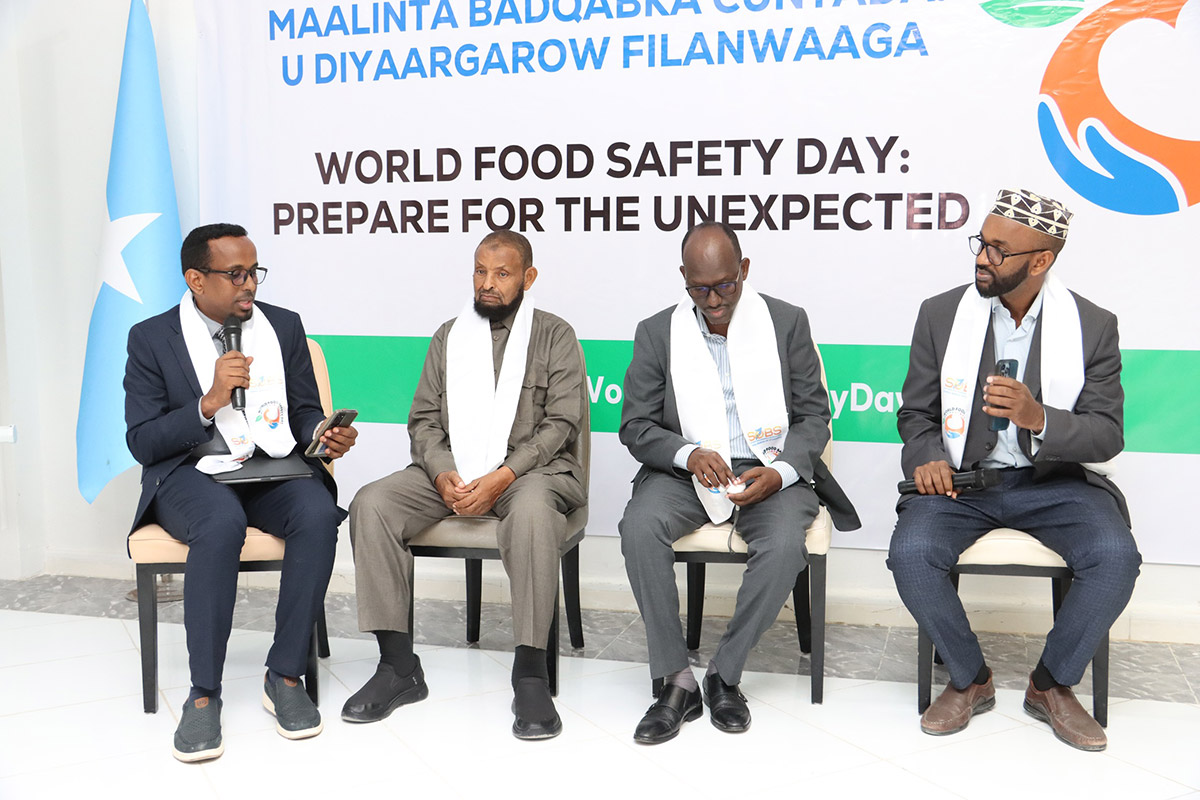 Unregulated food sources pose a significant risk, particularly to the low-income communities that rely on them, and the dangers are exacerbated by a lack of awareness of proper food handling, storage and hygiene practices on the part of both vendors and consumers.
Unregulated food sources pose a significant risk, particularly to the low-income communities that rely on them, and the dangers are exacerbated by a lack of awareness of proper food handling, storage and hygiene practices on the part of both vendors and consumers.
For decades, Somalia’s food safety landscape has been overlooked as the country has grappled with a host of challenges, including limited resources, political instability and inadequate enforcement mechanisms.
WHO Somalia has long stressed the need for collaboration between stakeholders to strengthen Somalia’s food safety system. During the forum, WHO Deputy Country Representative in Somalia Dr Mohamed Kamil reiterated calls for greater “collaboration among different sectors to put in place a comprehensive food safety network to ensure effective strategies to monitor and ensure safe and quality food for the Somali population”.
Director-General in the Ministry of Commerce and Industry Mohamed Saney Dalmar remarked: “This year’s event commemorating World Food Safety Day is a good reminder of the importance of all stakeholders, including the Government of Somalia, private sector and partners, to unite efforts to achieve food safety.”
“The Ministry of Commerce is committed to working with all stakeholders to ensure that food safety is given the attention it deserves. By working together, we can create a better food system with assured safety and quality standards that will not only improve the health of the nation but support the growth of the economy and increase the confidence of consumers in the food they consume in Somalia.”
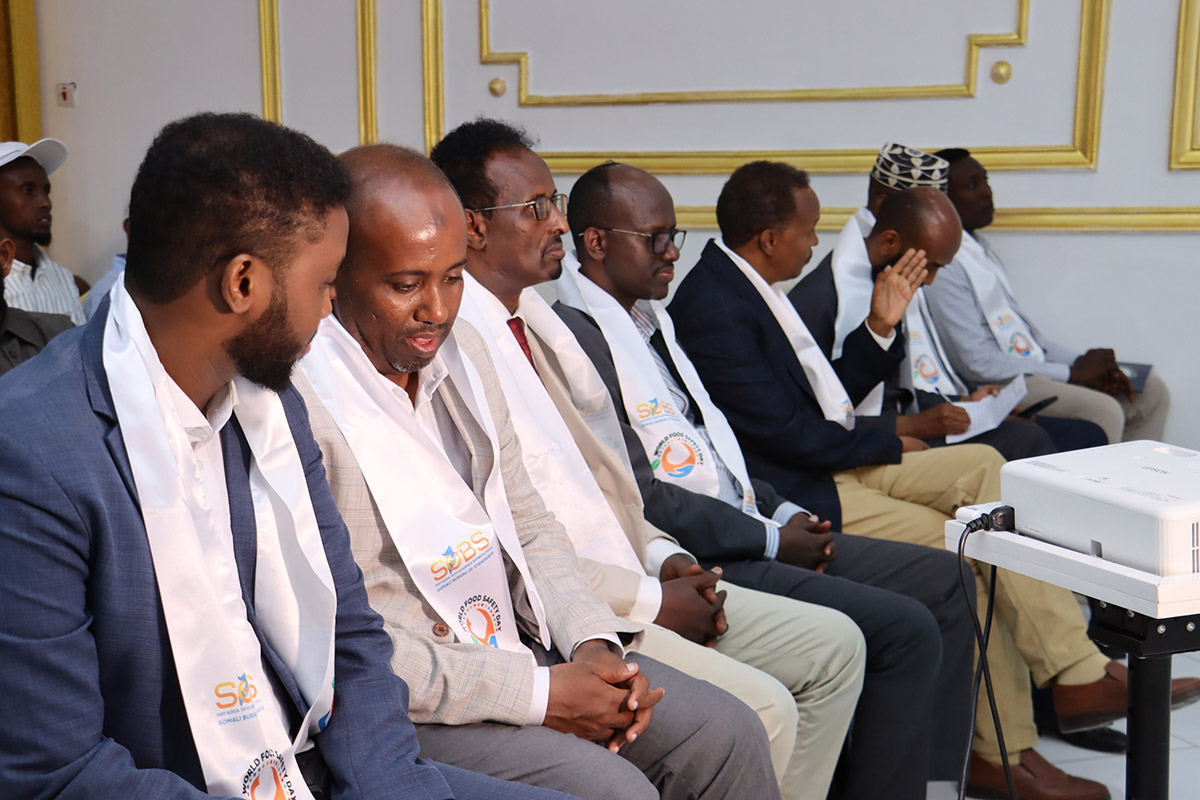 “One important area of focus is to enhance surveillance and response to contamination events and develop a laboratory infrastructure to support food safety testing and analysis. These are central to identifying hazards and ensuring compliance with standards and will make it possible to protect public health, increase exports and rebuild consumer confidence,” said Codex contact person for Somalia Mohamed Aden Hersi.
“One important area of focus is to enhance surveillance and response to contamination events and develop a laboratory infrastructure to support food safety testing and analysis. These are central to identifying hazards and ensuring compliance with standards and will make it possible to protect public health, increase exports and rebuild consumer confidence,” said Codex contact person for Somalia Mohamed Aden Hersi.
Director of the Association of Somali Universities Omar Ujalari underscored the importance of integrating food safety and quality control into educational curricula. "To achieve food safety, we must develop infrastructure like laboratories and pilot plants in universities for food testing and research. Incorporating food safety into community awareness campaigns and university programmes is vital for public health protection. We advocate for collaboration among the government, private sector and partners to strengthen food safety initiatives," he said.
The inaugural celebration of WFSD is a milestone in Somalia's efforts to prioritize food safety as a national issue. The forum highlighted the urgent need for comprehensive reforms in food safety systems to ensure access to healthy and safe food for all, called for continuous partnerships to advance food safety, and underlined the importance of building on the positive collaborations the forum fostered to further advance the food safety agenda.
For more information, please contact:
Khadar Hared
Communication Officer
World Health Organization, Somalia
Tel: +252619800011
Email:
Cette adresse email est protégée contre les robots des spammeurs, vous devez activer Javascript pour la voir.





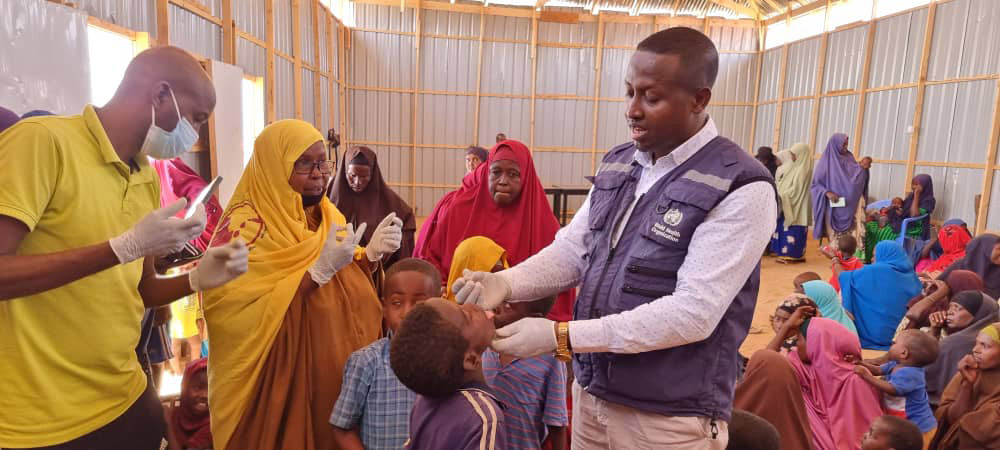
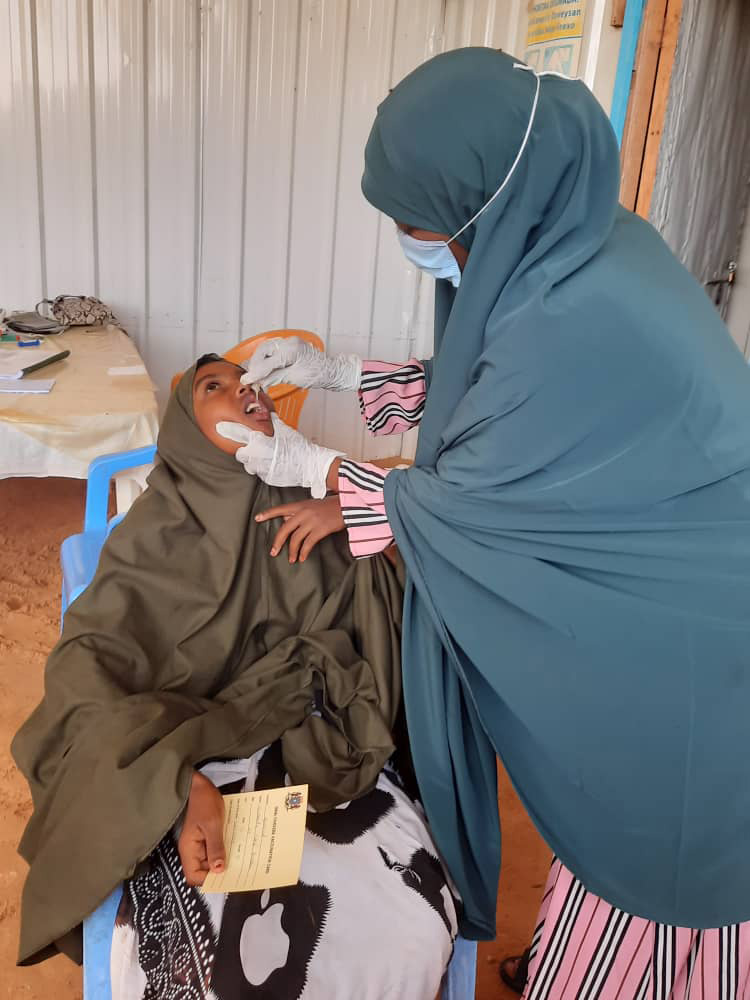 It is not the first time Hawa and her colleagues working in the polio programme have delivered on other public health priorities. They were also responsible for building coordination and strengthening surveillance during the COVID-19 pandemic response.
It is not the first time Hawa and her colleagues working in the polio programme have delivered on other public health priorities. They were also responsible for building coordination and strengthening surveillance during the COVID-19 pandemic response.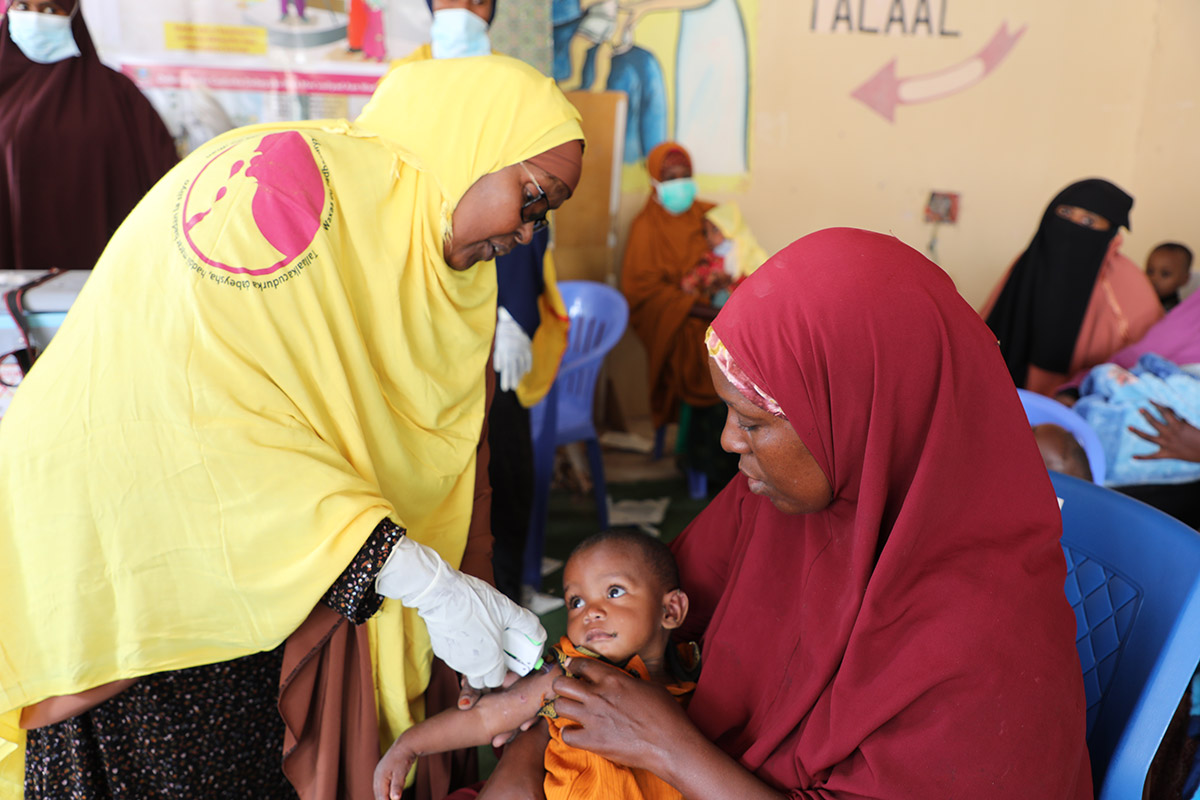 Over the years, cholera outbreaks have claimed many lives and placed immense pressure on Somalia's fragile health care system. Coordinated efforts by the Government of Somalia, WHO and partners have been instrumental in reducing the impact of the disease through rapid response measures, health education and vaccination campaigns.
Over the years, cholera outbreaks have claimed many lives and placed immense pressure on Somalia's fragile health care system. Coordinated efforts by the Government of Somalia, WHO and partners have been instrumental in reducing the impact of the disease through rapid response measures, health education and vaccination campaigns.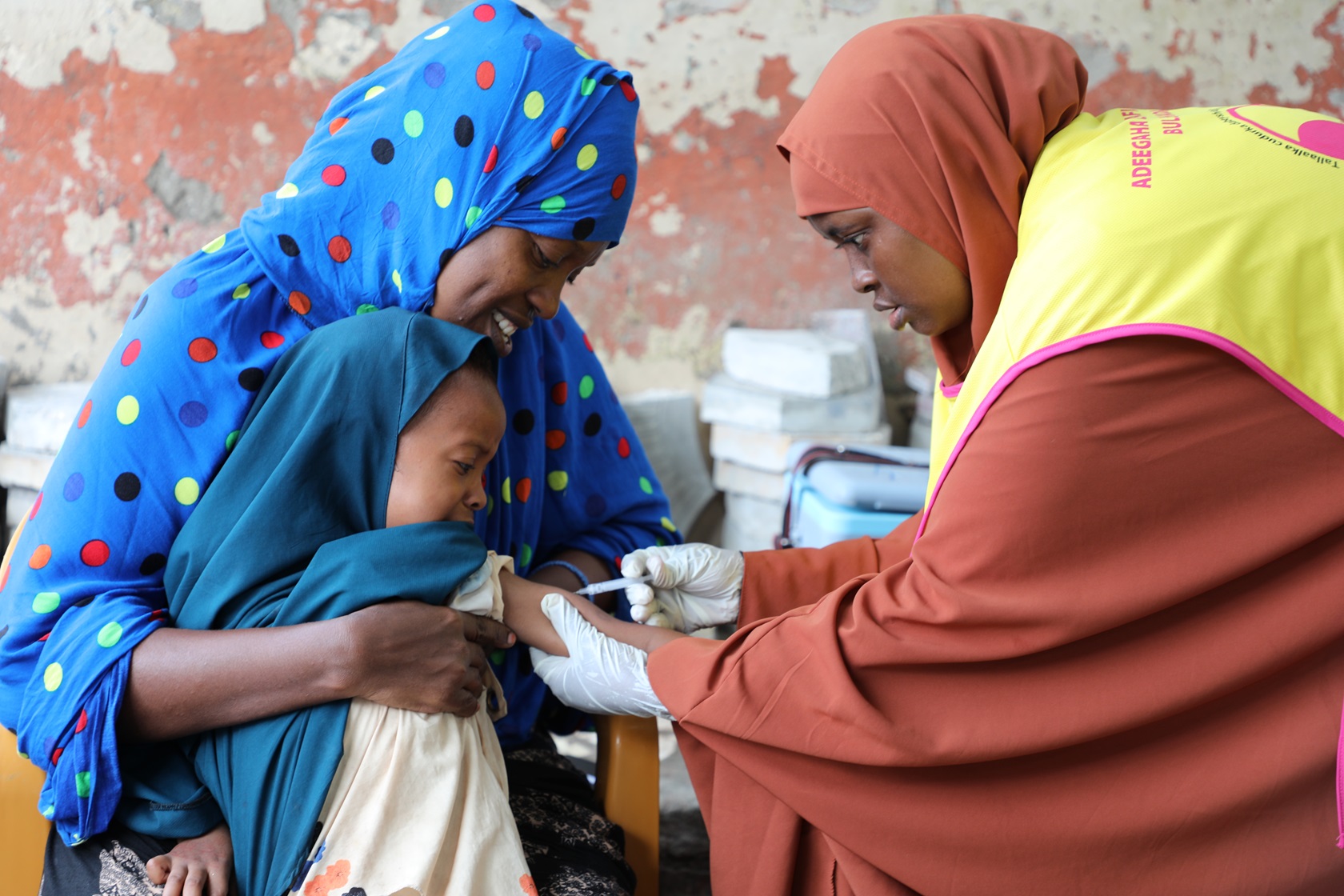 27 October, Mogadishu, Somalia – In Mogadishu, one of the few cities in the world where the threat of polio persists, Hani Jilaow Mohamed, a dedicated polio vaccinator, has been working on the front lines of public health since 2005.
27 October, Mogadishu, Somalia – In Mogadishu, one of the few cities in the world where the threat of polio persists, Hani Jilaow Mohamed, a dedicated polio vaccinator, has been working on the front lines of public health since 2005.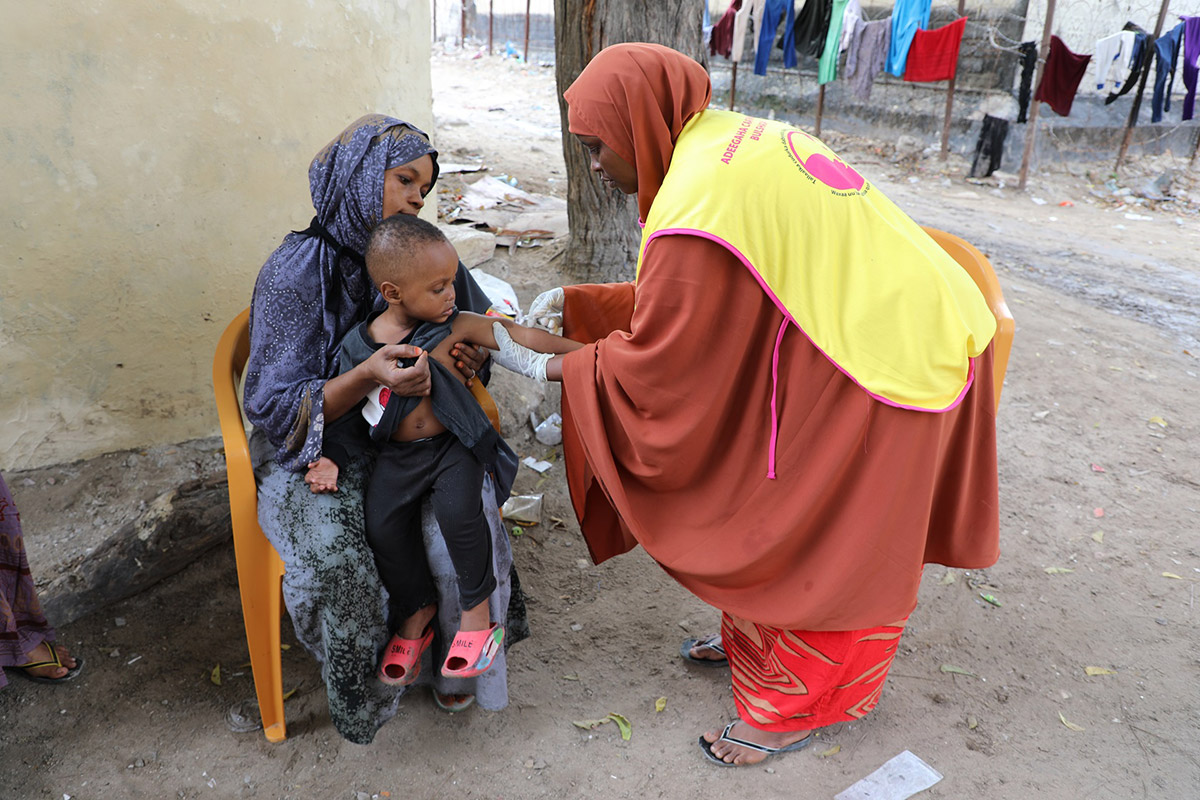 The absence of a functional government made it difficult for aid workers like Hani and her team to deliver essential health services. "In August 2006, when the security situation in Mogadishu was dire,” she recalls, “gang members, probably unaware of our mission, came after me and tried to steal our cold boxes. Luckily, none of my team was injured. And today, thankfully, things have improved."
The absence of a functional government made it difficult for aid workers like Hani and her team to deliver essential health services. "In August 2006, when the security situation in Mogadishu was dire,” she recalls, “gang members, probably unaware of our mission, came after me and tried to steal our cold boxes. Luckily, none of my team was injured. And today, thankfully, things have improved."